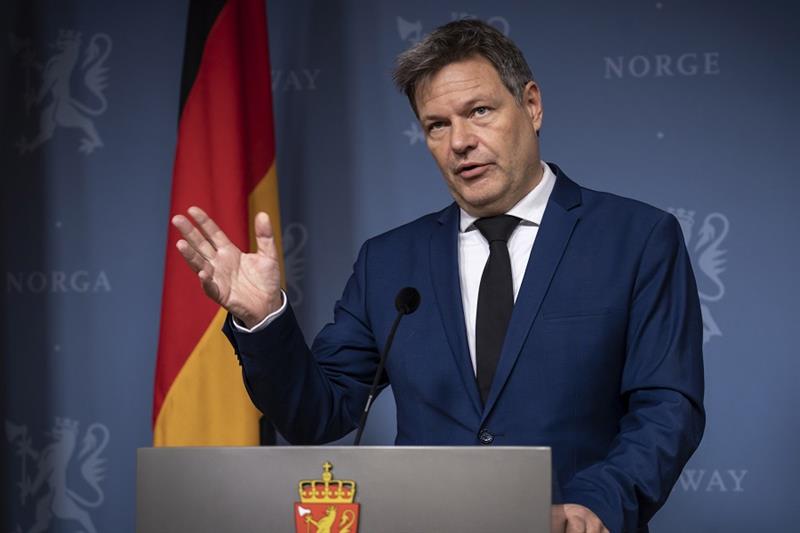
German Vice Chancellor and Economy and Climate Minister Robert Habeck speak during a joint news conference with Norwegian Prime Minister Jonas Gahr Store in Oslo, Norway, Thursday Jan. 5, 2023. AP
Russia, the biggest exporter of gas to the European Union before it invaded Ukraine, turned off the taps in September last year over crippling sanctions imposed against it over the war.
Germany, Europe's largest economy, was heavily dependent on Russian gas and scrambled to find alternative suppliers, such as Norway and the United States, paying a higher price for their gas.
"The worst-case scenario that threatened this summer has been avoided so far... a complete meltdown of the heart of European and German industry has been avoided," climate and economy minister Robert Habeck said during a visit to Oslo.
He told a press conference that gas "reservoirs are well-filled, more than 90 percent, and prices are falling."
Habeck said that while gas prices could rise again, he had a "certain optimism" ahead of next winter, as gas stocks have been boosted and deliveries of liquefied natural gas (LNG) have ramped up.
Like much of Europe, Germany has scrambled to build infrastructure to import LNG, and inaugurated its first terminal in December.
Norway boosted its gas production by eight percent last year and has become Europe's leading gas supplier since war broke out in Ukraine.
"Germany has rarely been more important to Norway than right now. And I think Norway has rarely been more important to Germany, than it is right now," Norwegian Prime Minister Jonas Gahr Store said.
On Thursday, the two countries agreed to boost cooperation in green sectors such as renewable energy and electric batteries.
Norwegian oil and gas giant Equinor and German utility firm RWE announced a joint hydrogen project aimed at helping Germany decarbonize its energy production.
The plan includes the construction of an unspecified number of plants -- initially fuelled by Norwegian natural gas -- to replace coal-fired power plants which Berlin wants to close by 2030.
While natural gas emits less CO2 than coal, it will gradually be replaced by hydrogen as production capacity increases.
The "blue" hydrogen will be produced from natural gas at first, with more than 95 percent of the CO2 captured through the industrial process.
It will then be carbon-free "green" hydrogen, using energy from offshore wind farms that Equinor and RWE want to develop jointly off Germany and Norway.
The plan includes the construction of a pipeline to transport hydrogen between Norway and Germany whose feasibility is being studied.
Short link: